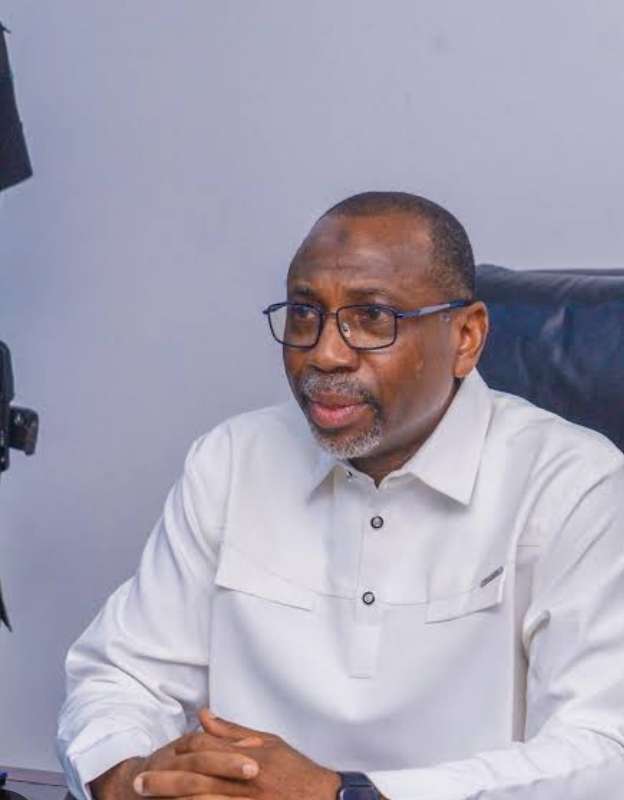In an incident that has stunned the public and embarrassed the state government, the mobile phone of Kaduna State Commissioner for Internal Security and Home Affairs, Barrister Sule Shu’aibu (SAN), was stolen during a high-level security meeting held in Kaduna on Friday, October 17, 2025.

The shocking event, which unfolded inside a venue filled with senior security officials, has sparked widespread reactions across Nigeria — not only because of the theft itself but because of what it says about the state of Nigeria’s internal security management.
The Incident That Left Security Operatives Speechless
The Commissioner was reportedly attending a strategic meeting with heads of various security agencies — including the police, military, DSS, and civil defence — when the incident occurred.
According to eyewitness accounts, discussions were ongoing when the Commissioner realised that his mobile phone, placed near him moments earlier, had mysteriously disappeared.
“It was unbelievable,” said one participant who spoke on condition of anonymity. “You had security chiefs, aides, and protocol officers all present — yet someone managed to steal the Commissioner’s phone without being caught.”
The hall was immediately thrown into confusion as aides and security operatives began searching the area. Despite the tight environment and supposed screening at the entrance, the device could not be found.
As of Saturday morning, the stolen phone had not been recovered, and no official suspect had been identified. However, the Kaduna State Government has reportedly launched an internal investigation, while security agents are said to be tracking the phone through its IMEI number.
The Irony That Has Nigerians Talking
The story has become a talking point across Nigeria — trending on social media platforms like X (formerly Twitter) and Facebook. The irony of a security commissioner losing his phone at a security meeting has not been lost on Nigerians.
Some see it as comic relief in the country’s tense political climate; others say it exposes a dangerous weakness in Nigeria’s security protocols.
A social media user wrote:
“When the person in charge of security can’t secure his own phone in a hall full of operatives, then what hope does the average Nigerian have?”
Another commented:
“This is beyond embarrassing. It’s a reflection of how deeply compromised our system has become. The thief probably sat in the same hall with uniformed officers!”
Why This Incident Matters
While it may seem like a minor theft, analysts say the implications are far-reaching. A commissioner’s phone is not just a communication gadget — it’s a vault of sensitive information. From classified messages and security contacts to official memos, the potential damage if the device is compromised could be enormous.
Security analyst Col. Bashir Musa (rtd) described the theft as “a serious intelligence breach that must not be treated as a mere petty crime.”
“We are dealing with a situation that could expose classified communication between security agencies. Whoever stole that phone has access to critical state information — or could sell it to those who want to harm Kaduna’s security network.”
Experts warn that the government must move fast to trace the device, disable access remotely, and conduct a digital forensic audit to determine if any sensitive data has already been accessed.
Kaduna’s Troubled Security Landscape
Kaduna State has been one of the most volatile in northern Nigeria, facing recurring challenges of bandit attacks, kidnappings, and communal conflicts.
Over the past few years, hundreds of lives have been lost to insurgent violence and highway ambushes, while entire communities have been displaced.
Barrister Sule Shu’aibu, who assumed the position of Commissioner for Internal Security and Home Affairs earlier this year, has been working to coordinate intelligence between security agencies and local vigilante networks. His efforts have been described as proactive — until this latest embarrassment.
The stolen phone incident has raised questions about how secure Kaduna’s internal systems truly are and whether similar lapses exist in other sensitive areas of governance.
Government and Police Reaction
Although the Kaduna State Government has not released an official statement as of press time, reliable sources say a discreet investigation is ongoing.
Officials close to the Commissioner confirmed that a formal report has been made to law enforcement authorities.
Police officers in charge of the case are reportedly reviewing CCTV footage from the event venue, while digital experts have been tasked with trying to locate or wipe the phone remotely.
Meanwhile, a senior government aide told Headlineswave.ng that the incident is being treated “with utmost seriousness” due to the sensitive nature of information on the device.
Public Perception and National Concern
The story has reignited discussions about Nigeria’s worsening insecurity and the need for stronger surveillance and verification systems during government meetings.
Many Nigerians are asking: If a commissioner’s phone can be stolen in a room full of security agents, how safe are ordinary citizens on the streets?
Public affairs commentator Dr. Okey Nnamdi described the event as “a wake-up call to every level of government.”
“This incident represents a symbolic collapse of vigilance. Security is not about guns and uniforms alone — it’s about systems, discipline, and accountability.”
He added that the government must use this as an opportunity to reform its internal processes, enforce stricter screening, and modernise digital security protocols for senior officials.
The Broader Lessons
The theft of a top official’s phone inside a security meeting is more than just an embarrassing story — it’s a metaphor for Nigeria’s fragile security architecture.
It exposes how negligence, overconfidence, or insider compromise can defeat even the tightest protocols. It also highlights the urgent need for technology-driven preventive measures rather than reactive responses.
This is not the first time a government official has suffered such an embarrassment. Similar incidents in Abuja and Lagos in past years show a disturbing pattern of lax security around senior political figures.
Experts recommend that officials adopt encrypted communication tools, enable remote data-wiping systems, and avoid leaving devices unattended during public events.
Final Thoughts
The theft of Kaduna’s Internal Security Commissioner’s phone may appear like a small incident, but it carries a powerful message:
Nigeria’s security problems are not only about bandits and kidnappers — they are also about the lack of vigilance and discipline within official circles.
Until those trusted with protecting others can fully secure themselves, citizens will continue to doubt the strength of the system meant to keep them safe.
As investigations continue, Nigerians are watching closely — hoping the stolen phone is recovered and that lessons learned from this embarrassing episode will strengthen, not weaken, the resolve to fix the country’s broken security framework.










